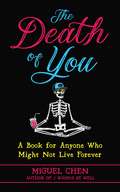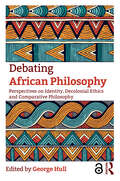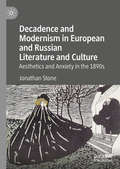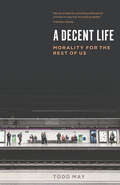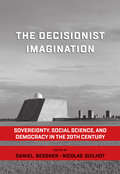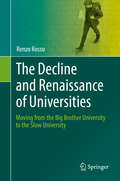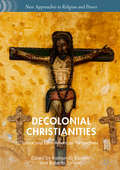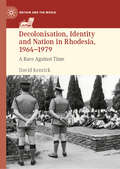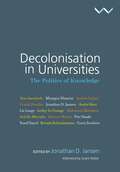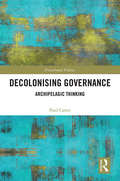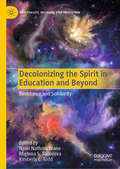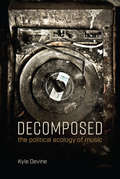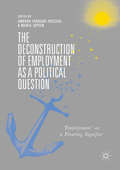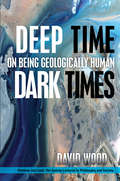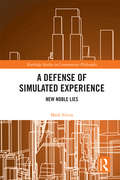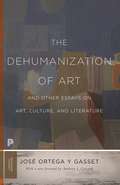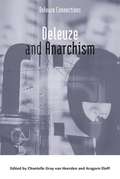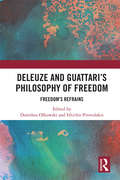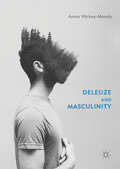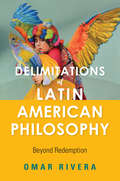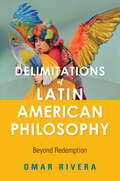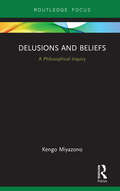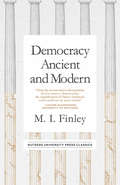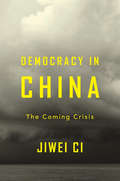- Table View
- List View
The Death of You: A Book for Anyone Who Might Not Live Forever
by Miguel Chen Rod Meade SperryA yoga teacher, punk rock bassist, and Buddhist teaches from experience on how approaching death and grief with a little more compassion and a little less fear will make for a better life—and a better death, too.DEATH. Even the word itself probably makes you a little uncomfortable. Just look at it, sitting there, demanding to be acknowledged. It might even make you a lot uncomfortable. We spend so much time trying to deny death, going on about our lives as if we and our loved ones are immune to it. Then, one day, its truth becomes undeniable. The Death of You doesn’t flinch in looking into this vital, urgent matter. Join Miguel for a wild ride where we get real about death—and even have a few laughs at its expense. If you might someday die—or if you know someone who will—this book is for you. If you’re afraid of dying, this book is for you. If you’re excited about the Great Unknown, this book is for you. In plainspoken, kind, and encouraging language, Miguel will show you how to transform your relationship with death—and in doing so, you'll get to know your life in a whole new way. Today is the perfect day to start. Don’t wait—you’re not gonna live forever.
Debates in the Digital Humanities 2019 (Debates in the Digital Humanities)
by Matthew K. Gold Lauren F. KleinThe latest installment of a digital humanities bellwether Contending with recent developments like the shocking 2016 U.S. Presidential election, the radical transformation of the social web, and passionate debates about the future of data in higher education, Debates in the Digital Humanities 2019 brings together a broad array of important, thought-provoking perspectives on the field’s many sides. With a wide range of subjects including gender-based assumptions made by algorithms, the place of the digital humanities within art history, data-based methods for exhuming forgotten histories, video games, three-dimensional printing, and decolonial work, this book assembles a who’s who of the field in more than thirty impactful essays.Contributors: Rafael Alvarado, U of Virginia; Taylor Arnold, U of Richmond; James Baker, U of Sussex; Kathi Inman Berens, Portland State U; David M. Berry, U of Sussex; Claire Bishop, The Graduate Center, CUNY; James Coltrain, U of Nebraska–Lincoln; Crunk Feminist Collective; Johanna Drucker, U of California–Los Angeles; Jennifer Edmond, Trinity College; Marta Effinger-Crichlow, New York City College of Technology–CUNY; M. Beatrice Fazi, U of Sussex; Kevin L. Ferguson, Queens College–CUNY; Curtis Fletcher, U of Southern California; Neil Fraistat, U of Maryland; Radhika Gajjala, Bowling Green State U; Michael Gavin, U of South Carolina; Andrew Goldstone, Rutgers U; Andrew Gomez, U of Puget Sound; Elyse Graham, Stony Brook U; Brian Greenspan, Carleton U; John Hunter, Bucknell U; Steven J. Jackson, Cornell U; Collin Jennings, Miami U; Lauren Kersey, Saint Louis U; Kari Kraus, U of Maryland; Seth Long, U of Nebraska, Kearney; Laura Mandell, Texas A&M U; Rachel Mann, U of South Carolina; Jason Mittell, Middlebury College; Lincoln A. Mullen, George Mason U; Trevor Muñoz, U of Maryland; Safiya Umoja Noble, U of Southern California; Jack Norton, Normandale Community College; Bethany Nowviskie, U of Virginia; Élika Ortega, Northeastern U; Marisa Parham, Amherst College; Jussi Parikka, U of Southampton; Kyle Parry, U of California, Santa Cruz; Brad Pasanek, U of Virginia; Stephen Ramsay, U of Nebraska–Lincoln; Matt Ratto, U of Toronto; Katie Rawson, U of Pennsylvania; Ben Roberts, U of Sussex; David S. Roh, U of Utah; Mark Sample, Davidson College; Moacir P. de Sá Pereira, New York U; Tim Sherratt, U of Canberra; Bobby L. Smiley, Vanderbilt U; Lauren Tilton, U of Richmond; Ted Underwood, U of Illinois, Urbana-Champaign; Megan Ward, Oregon State U; Claire Warwick, Durham U; Alban Webb, U of Sussex; Adrian S. Wisnicki, U of Nebraska–Lincoln.
Debating African Philosophy: Perspectives on Identity, Decolonial Ethics and Comparative Philosophy
by George HullIn African countries there has been a surge of intellectual interest in foregrounding ideas and thinkers of African origin—in philosophy as in other disciplines—that have been unjustly ignored or marginalized. African scholars have demonstrated that precolonial African cultures generated ideas and arguments which were at once truly philosophical and distinctively African, and several contemporary African thinkers are now established figures in the philosophical mainstream. Yet, despite the universality of its themes, relevant contributions from African philosophy have rarely permeated global philosophical debates. Critical intellectual excavation has also tended to prioritize precolonial thought, overlooking more recent sources of home-grown philosophical thinking such as Africa’s intellectually rich liberation movements. This book demonstrates the potential for constructive interchange between currents of thought from African philosophy and other intellectual currents within philosophy. Chapters authored by leading and emerging scholars: recover philosophical thinkers and currents of ideas within Africa and about Africa, bringing them into dialogue with contemporary mainstream philosophy; foreground the relevance of African theorizing to contemporary debates in epistemology, philosophy of language, moral/political philosophy, philosophy of race, environmental ethics and the metaphysics of disability; make new interventions within on-going debates in African philosophy; consider ways in which philosophy can become epistemically inclusive, interrogating the contemporary call for ‘decolonization’ of philosophy. Showing how foregrounding Africa—its ideas, thinkers and problems—can help with the project of renewing and improving the discipline of philosophy worldwide, this book will stimulate and challenge everyone with an interest in philosophy, and is essential reading for upper-level undergraduate students, postgraduate students and scholars of African and Africana philosophy.
Decadence and Modernism in European and Russian Literature and Culture: Aesthetics and Anxiety in the 1890s
by Jonathan StoneDecadence and Modernism in European and Russian Literature and Culture: Aesthetics and Anxiety in the 1890s rewrites the story of early modernist literature and culture by drawing out the tensions underlying its simultaneous engagement with Decadence and Symbolism, the unsustainable combination of this world and the other. With a broadly framed literary and cultural approach, Jonathan Stone examines a shift in perspective that explodes the notion of reality and showcases the uneasy relationship between the tangible and intangible aspects of the surrounding world. Modernism quenches a growing fascination with the ephemeral and that which cannot be seen while also doubling down on the significance of the material world and finding profound meaning in the physical and the corporeal. Decadence and Symbolism complement the broader historical trajectory of the fin de siècle by affirming the novelty of a modernist mindset and offering an alternative to the empirical and positivistic atmosphere of the nineteenth century. Stone seeks to recreate a significant historical and cultural moment in the development of modernity, a moment that embraces the concept of Decadence while repurposing its aesthetic and social import to help navigate the fundamental changes that accompanied the dawn of the twentieth century.
A Decent Life: Morality for the Rest of Us
by Todd May“In lively prose, May . . . breaks down complex philosophical concepts and uses a range of everyday examples to illustrate how morality can be practical.” —Publishers WeeklyIn a world full of suffering and deprivation, it’s easy to despair—and it’s also easy to judge ourselves for not doing more. Even if we gave away everything we own and devoted ourselves to good works, it wouldn’t solve all the world’s problems. It would make them better, though. So is that what we have to do? Is anything less a moral failure? Can we lead a fundamentally decent life without taking such drastic steps?Todd May has answers. He’s not the sort of philosopher who tells us we have to be model citizens who display perfect ethics in every decision we make. He’s realistic: he understands that living up to ideals is a constant struggle. In A Decent Life, May leads readers through the traditional philosophical bases of a number of arguments about what ethics asks of us, then he develops a more reasonable and achievable way of thinking about them, one that shows us how we can use philosophical insights to participate in the complicated world around us. He explores how we should approach the many relationships in our lives—with friends, family, animals, people in need—through the use of a more forgiving, if no less fundamentally serious, moral compass. With humor, insight, and a lively and accessible style, May opens a discussion about how we can, realistically, lead the good life that we aspire to.“A meditation on how striving for decency is a route towards personal satisfaction and happiness.” —Chicago Tribune
The Decisionist Imagination: Sovereignty, Social Science and Democracy in the 20th Century
by Nicolas Guilhot Daniel BessnerIn the decades following World War II, the science of decision-making moved from the periphery to the center of transatlantic thought. The Decisionist Imagination explores how “decisionism” emerged from its origins in prewar political theory to become an object of intense social scientific inquiry in the new intellectual and institutional landscapes of the postwar era. By bringing together scholars from a wide variety of disciplines, this volume illuminates how theories of decision shaped numerous techno-scientific aspects of modern governance—helping to explain, in short, how we arrived at where we are today.
The Decline and Renaissance of Universities: Moving from the Big Brother University to the Slow University
by Renzo RossoInstead of following the Magna Charta Universitatum, the declaration of the principles of knowledge signed in 1988 in Bologna, the academic approach pursued in Europe and the other continents over the past 30 years has strictly employed a utilitarian model of higher education. This jeopardizes academic freedom, shared governance and tenure, the three pillars of the long-established model of universities. Scientific conformism and fragmentation, educational bias and authoritarianism are the major drawbacks, together with a poor readiness to meet the emerging challenges in the labor market and technology. In this book, Renzo Rosso presents a new model for countering these developments, e.g. by establishing novel democratic rules for university governance. The Slow University paradigm positions culture and education as essential tools for the long-term survival of humankind.
Decolonial Christianities: Latinx and Latin American Perspectives (New Approaches to Religion and Power)
by Raimundo Barreto Roberto SirventWhat does it mean to theorize Christianity in light of the decolonial turn? This volume invites distinguished Latinx and Latin American scholars to a conversation that engages the rich theoretical contributions of the decolonial turn, while relocating Indigenous, Afro-Latin American, Latinx, and other often marginalized practices and hermeneutical perspectives to the center-stage of religious discourse in the Americas. Keeping in mind that all religions—Christianity included—are cultured, and avoiding the abstract references to Christianity common to the modern Eurocentric hegemonic project, the contributors favor embodied religious practices that emerge in concrete contexts and communities. Featuring essays from scholars such as Sylvia Marcos, Enrique Dussel, and Luis Rivera-Pagán, this volume represents a major step to bring Christian theology into the conversation with decolonial theory.
Decolonisation, Identity and Nation in Rhodesia, 1964-1979: A Race Against Time (Britain and the World)
by David KenrickThis book explores concepts of decolonisation, identity, and nation in the white settler society of Rhodesia (now Zimbabwe) between 1964 and 1979. It considers how white settlers used the past to make claims of authority in the present. It investigates the white Rhodesian state’s attempts to assert its independence from Britain and develop a Rhodesian national identity by changing Rhodesia’s old colonial symbols, and examines how the meaning of these national symbols changed over time. Finally, the book offers insights into the role of race in Rhodesian national identity, showing how portrayals of a ‘timeless’ black population were highly dependent upon circumstance and reflective of white settler anxieties. Using a comparative approach, the book shows parallels between Rhodesia and other settler societies, as well as other post-colonial nation-states and even metropoles, as themes and narratives of decolonisation travelled around the world.
Decolonisation in Universities: The Politics of Knowledge
by Jonathan JansenShortly after the giant bronze statue of Cecil John Rhodes came down at the University of Cape Town, student protestors called for the decolonisation of universities. It was a word hardly heard in South Africa’s struggle lexicon and many asked: What exactly is decolonisation? This edited volume brings together the best minds in curriculum theory to address this important question. In the process, several critical questions are raised: Is decolonisation simply a slogan for addressing other pressing concerns on campuses and in society? What is the colonial legacy with respect to curriculum and can it be undone? How is the project of curriculum decolonisation similar to or different from the quest for postcolonial knowledge, indigenous knowledge or a critical theory of knowledge? What does decolonisation mean in a digital age where relationships between knowledge and power are shifting? <P><P>The book combines strong conceptual analyses with novel case studies of attempts to ‘do decolonisation’ in settings as diverse as South Africa, Uganda, Tanzania and Mauritius. Such a comparative perspective enables reasonable judgements to be made about the prospects for institutional take-up within the curriculum of century-old universities.
Decolonising Governance: Archipelagic Thinking (Postcolonial Politics)
by Paul CarterPower may be globalized, but Westphalian notions of sovereignty continue to determine political and legal arrangements domestically and internationally: global issues - the legacy of colonialism expressed in continuing human displacement and environmental destruction - are thus treated ‘parochially’ and ineffectually. Not designed for dealing with situations of interdependence, democratic institutions find themselves in crisis. Reform in this case is not simply operational but conceptual: political relationships need to be drawn differently; the cultural illiteracy that prevents the local knowledge invested in places made after their stories needs to be recognised as a major obstacle to decolonising governance. Archipelagic thinking refers to neglected dimensions of the earth’s human geography but also to a geo-politics of relationality, where governance is understood performatively as the continuous establishment of exchange rates. Insisting on the poetic literacy that must inform a decolonising politics, Carter suggests a way out of the incommensurability impasse that dogs assertions of indigenous sovereignty. Discussing bicultural areal management strategies located in south-west Victoria, Maluco (Indonesia) and inter-regionally across the Arafura and Timor Seas, Carter argues for the existence of creative regions constituted archipelagically that can intervene to rewrite the theory and practice of decolonisation. A book of great stylistic elegance and deftness of analysis, Decolonising Governance is an important intervention in the related fields of ecological, ecocritical and environmental humanities. Methodologically innovative in its foregrounding of relationality as the nexus between poetics and politics, it will also be of great interest to scholars in a range of areas, including communicational praxis, land/sea biodiversity design, bicultural resource management, and the constitution of post-Westphalian regional jurisdictions.
Decolonizing the Spirit in Education and Beyond: Resistance and Solidarity (Spirituality, Religion, and Education)
by Njoki Nathani Wane Miglena S. Todorova Kimberly L. ToddThis multidisciplinary collection probes ways in which emerging and established scholars perceive and theorize decolonization and resistance in their own fields of work, from education to political and social studies, to psychology, medicine, and beyond. In this time of renewed global spiritual awakening, indigenous communities are revisiting ways of knowing and evoking theories of resistance informed by communal theories of solidarity. Using an intersectional lens, chapter authors present or imagine modes of solidarity, resistance, and political action that subvert colonial and neocolonial formations. Placing emphasis on the importance of theorizing the spirit, a discourse that is deeply embedded in our unique cultures and ancestries, this book is able to capture and better understand these moments and processes of spiritual emergence/re-emergence.
Decomposed: The Political Ecology of Music (The\mit Press Ser.)
by Kyle DevineThe hidden material histories of music.Music is seen as the most immaterial of the arts, and recorded music as a progress of dematerialization—an evolution from physical discs to invisible digits. In Decomposed, Kyle Devine offers another perspective. He shows that recorded music has always been a significant exploiter of both natural and human resources, and that its reliance on these resources is more problematic today than ever before. Devine uncovers the hidden history of recorded music—what recordings are made of and what happens to them when they are disposed of. Devine's story focuses on three forms of materiality. Before 1950, 78 rpm records were made of shellac, a bug-based resin. Between 1950 and 2000, formats such as LPs, cassettes, and CDs were all made of petroleum-based plastic. Today, recordings exist as data-based audio files. Devine describes the people who harvest and process these materials, from women and children in the Global South to scientists and industrialists in the Global North. He reminds us that vinyl records are oil products, and that the so-called vinyl revival is part of petrocapitalism. The supposed immateriality of music as data is belied by the energy required to power the internet and the devices required to access music online. We tend to think of the recordings we buy as finished products. Devine offers an essential backstory. He reveals how a range of apparently peripheral people and processes are actually central to what music is, how it works, and why it matters.
The Deconstruction of Employment as a Political Question: 'Employment' as a Floating Signifier
by Amparo Serrano-Pascual Maria JepsenThe wide-ranging European perspectives brought together in this volume aim to analyse, by means of an interdisciplinary approach, the numerous implications of a massive shift in the conception of ‘work’ and the category of ‘worker’. Changes in the production models, economic downturn and increasing digitalisation have triggered a breakdown in the terms and assumptions that previously defined and shaped the notion of employment. This has made it more difficult to discuss, and problematise, issues like vulnerability in employment in such terms as unfairness, inequality and inadequate protection. Taking the ‘deconstruction of employment’ as a central idea for theorising the phenomenon of work today, this volume explores the emergence of new semantic fields and territories for understanding and regulating employment. These new linguistic categories have implications beyond language alone: they reformulate the very concept of waged employment (including those aspects previously considered intrinsic to the meaning of work and of being ‘a worker’), along with other closely associated categories such as unemployment, self-employment, and inactivity.
Deep Time, Dark Times: On Being Geologically Human (Thinking Out Loud)
by David WoodThe new geological epoch we call the Anthropocene is not just a scientific classification. It marks a radical transformation in the background conditions of life on Earth, one taken for granted by much of who we are and what we hope for. Never before has a species possessed both a geological-scale grasp of the history of the Earth and a sober understanding of its own likely fate. Our situation forces us to confront questions both philosophical and of real practical urgency. We need to rethink who “we” are, what agency means today, how to deal with the passions stirred by our circumstances, whether our manner of dwelling on Earth is open to change, and, ultimately, “What is to be done?” Our future, that of our species, and of all the fellow travelers on the planet depend on it.The real-world consequences of climate change bring new significance to some very traditional philosophical questions about reason, agency, responsibility, community, and man’s place in nature. The focus is shifting from imagining and promoting the “good life” to the survival of the species. Deep Time, Dark Times challenges us to reimagine ourselves as a species, taking on a geological consciousness. Drawing promiscuously on the work of Nietzsche, Heidegger, Foucault, Derrida, Deleuze, and other contemporary French thinkers, as well as the science of climate change, David Wood reflects on the historical series of displacements and de-centerings of both the privilege of the Earth, and of the human, from Copernicus through Darwin and Freud to the declaration of the age of the Anthropocene. He argues for the need to develop a new temporal phronesis and to radically rethink who “we” are in respect to solidarity with other humans, and responsibility for the nonhuman stakeholders with which we share the planet. In these brief, lively chapters, Wood poses a range of questions centered on our individual and collective political agency. Might not human exceptionalism be reborn as a sort of hyperbolic responsibility rather than privilege?
A Defense of Simulated Experience: New Noble Lies (Routledge Studies in Contemporary Philosophy)
by Mark SilcoxThis book defends an account of the positive psychological, ethical, and political value of simulated human experience. Philosophers from Plato and Augustine to Heidegger, Nozick, and Baudrillard have warned us of the dangers of living on too heavy a diet of illusion and make-believe. But contemporary cultural life provides broader, more attractive opportunities to do so than have existed at any other point in history. The gentle forms of self-deceit that such experiences require of us, and that so many have regarded as ethically unwholesome or psychologically self-destructive, can in fact serve as vital means to political reconciliation, cultural enrichment, and even (a kind of) utopia. The first half of the book provides a highly schematic definition of simulated experience and compares it with some claims about the nature of simulation made by other philosophers about what it is for one thing to be a simulation of another. The author then provides a critical survey of the views of some major authors about the value of certain specific types of simulated experience, mainly in order to point out the many puzzling inconsistencies and ambiguities that their thoughts upon the topic often exhibit. In the second half of the book, the author defends an account of the positive social value of simulated experience and compares his own position to the ideas of a number of utopian political thinkers, as well as to Plato's famous doctrine of the "noble lie." He then makes some tentative practical suggestions about how a proper appreciation of the value of simulated experience might influence public policy decisions about such matters as the justification of taxation, paternalistic "choice management," and governmental transparency. A Defense of Simulated Experience will appeal to a broad range of philosophers working in normative ethics, aesthetics, the philosophy of technology, political philosophy, and the philosophy of culture who are interested in questions about simulated experience. The book also makes a contribution to the emerging field of Game Studies.
The Dehumanization of Art and Other Essays on Art, Culture, and Literature
by José Ortega y GassetA classic work on radical aesthetics by one of the great philosophers of the early twentieth century No work of philosopher and essayist José Ortega y Gasset has been more frequently cited, admired, or criticized than his response to modernism, “The Dehumanization of Art.” The essay, originally published in Spanish in 1925, grappled with the newness of nonrepresentational art and sought to make it more understandable to the public. Many embraced the essay as a manifesto extolling the virtues of vanguard artists and promoting efforts to abandon the realism and the romanticism of the nineteenth century. Others took it as a denunciation of everything that was radical about the avant-garde. This Princeton Classics edition makes this essential work, along with four of Ortega’s other critical essays, available in English. A new foreword by Anthony J. Cascardi considers how Ortega’s philosophy remains relevant and significant in the twenty-first century.
Deleuze And Anarchism (Deleuze Connections)
by Chantelle Heerden Aragorn EloffExplores Deleuze and Guattari's own diverse conceptions of anarchism and expands it in the spirit of their philosophy <p><p> This collection of 13 essays addresses and explores Deleuze and Guattari's relationship to the notion of anarchism: in the diverse ways that they conceived of and referred to it throughout their work, and also more broadly in terms of the spirit of their philosophy and in their critique of capitalism and the State. <p> Both Deleuze and Guattari were deeply affected by the events of May '68 and an anarchist sensibility permeates their philosophy. However, they never explicitly sustained a discussion of anarchism in their work. Their concept of anarchism is diverse and they referred to in very different senses throughout their writings. This is the first collection to bring Deleuze and Guattari together with anarchism in a focused and sustained way.
Deleuze and Guattari's Philosophy of Freedom: Freedom’s Refrains
by Dorothea Olkowski Eftichis PirovolakisThis volume addresses the issue of freedom in the philosophy of Deleuze and Guattari. This is all the more challenging in that Deleuze-Guattari almost never use the term freedom, preferring instead, the concept of the refrain. The essays collected in the volume show that freedom has been understood in a remarkably narrow sense and that in fact freedom operates as the refrain in every realm of thought and creation. The motivating approach in these essays is Deleuze-Guattari’s emphasis on the irreality of media and capitalistic sign regimes, which they perceive to have taken over even the practices of philosophy, the arts, and science. By offering a clear and engaging treatment of the underexplored issue of freedom, this volume moves the discussion of Deleuze-Guattari’s philosophy forward in ways that will appeal to researchers in Continental philosophy and a wide range of other disciplines.
Deleuze and Masculinity
by Anna Hickey-MoodyThis book uses Deleuze’s work to understand the politics of masculinity today. It analyses masculinity in terms of what it does, how it operates and what its affects are. Taking a pragmatic approach, Hickey-Moody shapes chapters around key Deleuzian concepts that have proved generative in masculinity studies and then presents case studies of popular subjects and offers overviews of disciplines that have applied Deleuze’s work to the study of men’s lives. This book shows how the concepts of affect and assemblage have contributed to, and transformed, the work undertaken by the foundational concept of performativity in gender studies. Examining the work of Deleuze and Guattari on the psychoanalytic boy, as exemplified by their writing on Little Hans, Hickey-Moody reconsiders the politics of their approach to psychoanalytic models of young masculinity. In this context, the author examines contemporary lived performances of young masculinity, drawing on her own fieldwork. <P><P> The field of disability and masculinity studies has taken up the work of Deleuze and Guattari in a nearly unprecedented fashion. Accordingly, the book also explores the gendered nature of disability, and canvases some of the substantive scholarly contributions that have been made to this interdisciplinary space, before introducing case studies of the work of North American photographer Michael Stokes and the popular Hollywood film Me Before You. The book provocatively concludes by challenging scholars to take up Deleuze’s thought to re-shape gendered economies of knowledge and matter that support and contribute to systems of patriarchal domination mediated through environmental exploitation.
Delimitations of Latin American Philosophy: Beyond Redemption (World Philosophies)
by Omar RiveraA distinctive focus of 19th- and 20th-century Latin American philosophy is the convergence of identity formation and political liberation in ethnically and racially diverse postcolonial contexts. From this perspective, Omar Rivera interprets how a "we" is articulated and deployed in central political texts of this robust philosophical tradition. In particular, by turning to the work of Peruvian political theorist José Carlos Mariátegui among others, Rivera critiques philosophies of liberation that are invested in the redemption of oppressed identities as conditions for bringing about radical social and political change, foregrounding Latin America's complex histories and socialities to illustrate the power and shortcomings of these projects. Building on this critical approach, Rivera studies interrelated epistemological, transcultural, and aesthetic delimitations of Latin American philosophy in order to explore the possibility of social and political liberation "beyond redemption."
Delimitations of Latin American Philosophy: Beyond Redemption (World Philosophies)
by Omar Rivera“[An] original view of José Carlos Mariátegui’s role in Latin American philosophy and his relation to identity, liberation, and aesthetics (Elizabeth Millán Brusslan, editor of After the Avant-Gardes).In the nineteenth and twentieth centuries, Latin American philosophy focused on the convergence of identity formation and political liberation in ethnically and racially diverse postcolonial contexts. In this book, Omar Rivera interprets how a “we” is articulated and deployed in this robust philosophical tradition. With close readings of Peruvian political theorist José Carlos Mariátegui, he also examines texts by José Martí, Simón Bolívar, and others.Rivera critiques philosophies of liberation that frame the redemption of oppressed identities as a condition for bringing about radical social and political change. Shining a light on Latin America’s complex histories and socialities, he illustrates the power and shortcomings of these projects.Building on this critical approach, Rivera studies interrelated epistemological, transcultural, and aesthetic delimitations of Latin American philosophy in order to explore the possibility of social and political liberation “beyond redemption.”
Delusions and Beliefs: A Philosophical Inquiry (Routledge Focus on Philosophy)
by Kengo MiyazonoWhat sort of mental state is a delusion? What causes delusions? Why are delusions pathological? This book examines these questions, which are normally considered separately, in a much-needed exploration of an important and fascinating topic, Kengo Miyazono assesses the philosophical, psychological and psychiatric literature on delusions to argue that delusions are malfunctioning beliefs. Delusions belong to the same category as beliefs but - unlike healthy irrational beliefs - fail to play the function of beliefs. Delusions and Beliefs: A Philosophical Inquiry will be of great interest to students of philosophy of mind and psychology and philosophy of mental disorder, as well as those in related fields such as mental health and psychiatry.
Democracy Ancient and Modern (Mason Welch Gross Lecture Series)
by M. I. FinleyWestern democracy is now at a critical juncture. Some worry that power has been wrested from the people and placed in the hands of a small political elite. Others argue that the democratic system gives too much power to a populace that is largely ill-informed and easily swayed by demagogues. This classic study of democratic principles is thus now more relevant than ever. A renowned historian of antiquity and political philosophy, Sir M.I. Finley offers a comparative analysis of Greek and modern conceptions of democracy. As he puts the ancient Greeks in dialogue with their contemporary counterparts, Finley tackles some of the most pressing issues of our day, including public apathy, partisanship, consensus politics, distrust of professional politicians, and the limits of free speech. Including three lectures that Finley delivered at Rutgers University, plus two additional essays that further illuminate his thinking, Democracy Ancient and Modern explores the dramatic differences between the close-knit civil society of the ancient Greeks and our own atomized mass societies. By mapping out democracy’s past and its present manifestations, this book helps us plot a course for democracy’s future.
Democracy in China: The Coming Crisis
by Jiwei CiFour decades of reform fostered a democratic mentality in China. Now citizens are waiting for the government to catch up. Jiwei Ci argues that the tensions between a largely democratic society and an undemocratic political system will trigger a crisis of legitimacy, compelling the Communist Party to become agents of democratic change—or collapse.
